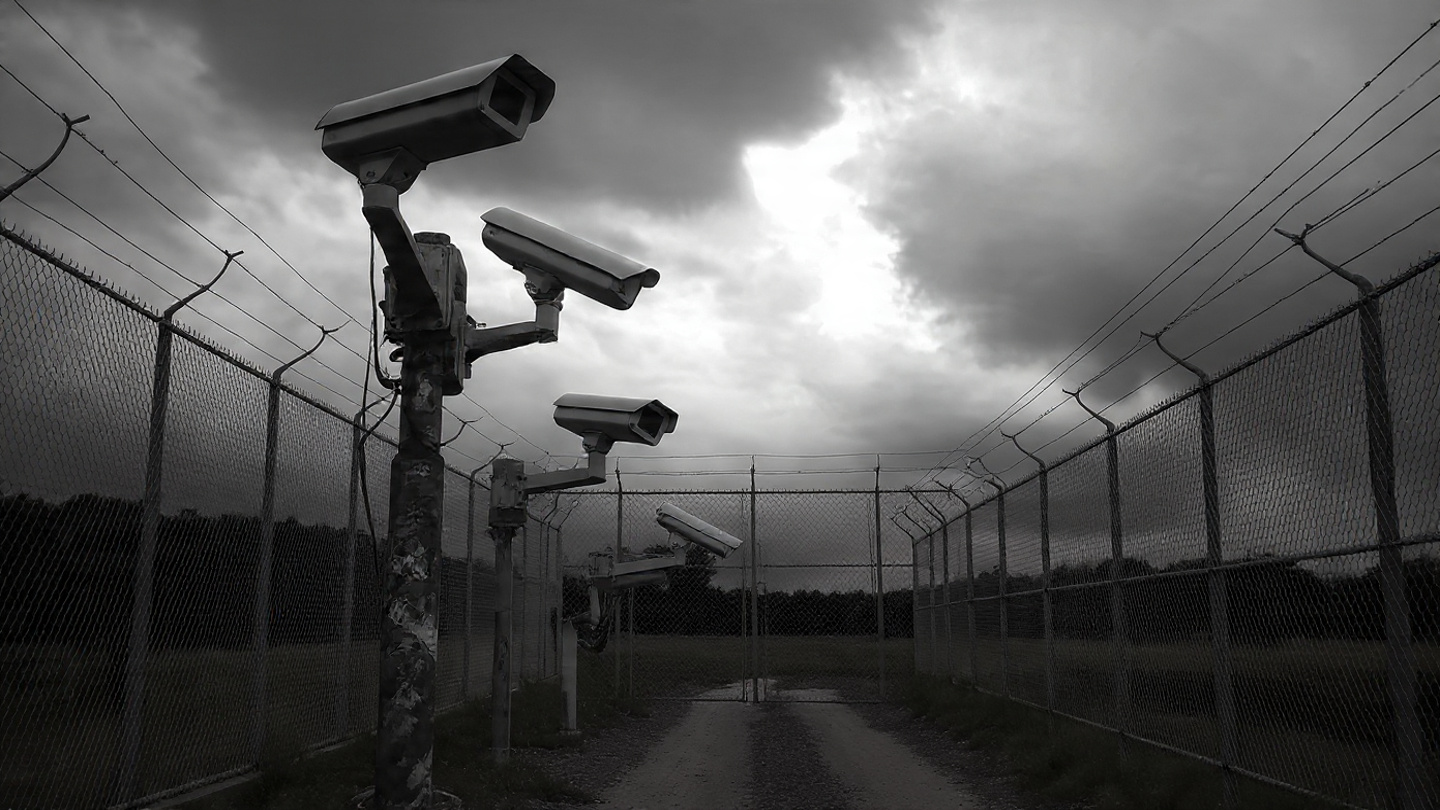How to Protect Your Empty Asset
Vacant properties present a unique set of challenges and risks that can lead to significant financial losses and safety concerns. When a property is unoccupied, it becomes an attractive target for criminal activity, including vandalism, theft, and squatting. The absence of regular human presence can signal to potential intruders that the property is an easy mark.
Additionally, vacant properties can suffer from neglect, leading to deterioration that may further attract unwanted attention. Understanding these risks is crucial for property owners who wish to protect their investments and maintain the integrity of their assets. Moreover, vacant properties can also pose safety hazards to the surrounding community.
Overgrown vegetation, broken windows, and structural damage can create an environment that is not only uninviting but also dangerous. These conditions can lead to accidents or injuries, which may result in liability issues for the property owner. Therefore, it is essential to recognize the multifaceted risks associated with vacant properties and take proactive measures to mitigate them effectively. Peace of mind is our priority.
Assessing the Vulnerabilities of Your Vacant Property
To effectively safeguard a vacant property, it is vital to conduct a thorough assessment of its vulnerabilities. This process involves identifying potential entry points that could be exploited by intruders, such as unsecured doors, windows, and even roof access. Additionally, evaluating the surrounding environment is equally important; poorly lit areas or overgrown landscaping can provide cover for criminal activities.
By understanding these vulnerabilities, property owners can prioritize their security efforts and allocate resources more effectively. Another critical aspect of assessing vulnerabilities is considering the property’s location. Properties situated in high-crime areas may require more robust security measures compared to those in safer neighborhoods.
Furthermore, understanding the local crime trends can help property owners anticipate potential threats and tailor their security strategies accordingly. By conducting a comprehensive vulnerability assessment, property owners can develop a targeted approach to securing their vacant properties.
Implementing Physical Security Measures
Once vulnerabilities have been identified, implementing physical security measures becomes paramount. These measures serve as the first line of defense against unauthorized access and criminal activity. Simple yet effective solutions include installing sturdy locks on all doors and windows, reinforcing entry points with deadbolts, and utilizing security bars or grilles where appropriate.
Additionally, maintaining a well-lit exterior can deter potential intruders by eliminating hiding spots and increasing visibility. Beyond basic locking mechanisms, property owners may also consider investing in perimeter fencing or gates to create a physical barrier around the property. This not only enhances security but also sends a clear message that the property is being monitored and protected.
Landscaping can also play a role in physical security; trimming back bushes and trees can eliminate potential hiding spots for intruders while enhancing the overall appearance of the property.
Installing Security Systems and Alarms
In today’s technologically advanced world, security systems and alarms are essential components of any comprehensive security strategy for vacant properties. These systems provide real-time monitoring and alerts that can help deter criminal activity before it escalates. Property owners should consider installing alarm systems that are equipped with motion sensors, door/window sensors, and glass break detectors.
These features ensure that any unauthorized access triggers an immediate response. Additionally, integrating surveillance cameras into the security system can provide valuable visual evidence in the event of a break-in or vandalism. Modern security cameras often come with remote access capabilities, allowing property owners to monitor their property from anywhere using a smartphone or computer.
This level of oversight not only enhances security but also provides peace of mind for property owners who may be far away from their vacant properties.
Hiring Security Personnel
For those seeking an added layer of protection for their vacant properties, hiring security personnel can be an effective solution. Security guards can provide a visible deterrent to potential criminals while actively monitoring the premises for suspicious activity. Depending on the property’s size and location, property owners may choose to hire full-time security staff or opt for periodic patrols by a professional security company.
In addition to providing physical presence, trained security personnel can conduct regular inspections of the property to identify any emerging vulnerabilities or maintenance issues. Their expertise allows them to respond quickly to any incidents that may arise, ensuring that the property remains secure at all times. By investing in professional security services, property owners can significantly reduce the risk of criminal activity and protect their investment.
Securing Doors and Windows

Securing doors and windows is a fundamental aspect of protecting any vacant property. Property owners should begin by ensuring that all entry points are equipped with high-quality locks that meet industry standards. Deadbolts are particularly effective in providing an additional layer of security against forced entry.
Furthermore, reinforcing door frames and installing strike plates can enhance the overall strength of doors. Windows are often vulnerable points of entry for intruders; therefore, it is essential to secure them properly as well. Property owners should consider using window locks or security film to make glass more resistant to breakage.
Additionally, installing window bars or grilles can provide an extra layer of protection without compromising aesthetics. By taking these steps to secure doors and windows, property owners can significantly reduce the likelihood of unauthorized access.
Utilizing Remote Monitoring and Surveillance
Remote monitoring and surveillance technology have revolutionized the way property owners protect their vacant properties. With advancements in smart technology, property owners can now monitor their premises in real-time from virtually anywhere in the world. This capability allows for immediate response to any suspicious activity or alarms triggered by security systems.
Surveillance cameras equipped with motion detection features can send alerts directly to a property owner’s smartphone or email when movement is detected on the premises. This level of oversight not only enhances security but also provides valuable evidence in case of an incident. Additionally, many modern surveillance systems offer cloud storage options for recorded footage, ensuring that important evidence is preserved for future reference.
Maintaining the Property to Deter Criminal Activity
Regular maintenance of a vacant property is crucial in deterring criminal activity and preserving its value. An unkempt property with overgrown grass, broken windows, or peeling paint sends a signal that it is neglected and may attract unwanted attention from criminals. Property owners should establish a routine maintenance schedule that includes landscaping, cleaning gutters, repairing any damage, and ensuring that all systems are functioning properly.
In addition to maintaining the property’s physical appearance, it is essential to keep utilities connected where possible. A well-lit exterior with functioning lights not only enhances safety but also discourages potential intruders who prefer dark and secluded areas. By taking proactive steps to maintain the property, owners can create an environment that is less appealing to criminals while also preserving the property’s overall value.
Working with Local Law Enforcement
Establishing a relationship with local law enforcement can be beneficial for property owners seeking to secure their vacant properties. Local police departments often have programs designed to assist property owners in safeguarding their assets during periods of vacancy. By informing law enforcement about the property’s status and any security measures in place, officers can increase patrols in the area and respond more quickly to any incidents.
Additionally, local law enforcement may offer valuable advice on crime trends in the area and recommend specific security measures tailored to the property’s location. Engaging with law enforcement not only enhances security but also fosters a sense of community involvement in crime prevention efforts.
Securing the Property’s Perimeter
Securing the perimeter of a vacant property is essential in creating a strong defense against unauthorized access. A well-defined boundary helps deter potential intruders while also providing peace of mind for property owners. Installing fencing around the property can serve as both a physical barrier and a visual deterrent; however, it is important to choose fencing materials that are durable and difficult to breach.
In addition to fencing, property owners should consider incorporating natural barriers such as hedges or shrubs along the perimeter. These elements not only enhance aesthetics but also create additional obstacles for potential intruders attempting to access the property undetected. By taking steps to secure the property’s perimeter effectively, owners can significantly reduce the risk of criminal activity.
Insurance Considerations for Vacant Properties
Finally, it is crucial for property owners to consider insurance options specifically designed for vacant properties. Standard homeowner’s insurance policies may not provide adequate coverage for properties that are unoccupied for extended periods. Property owners should consult with insurance professionals who specialize in vacant property insurance to ensure they have appropriate coverage in place.
Vacant property insurance typically covers risks such as vandalism, theft, fire damage, and liability claims arising from accidents on the premises. By securing comprehensive insurance coverage tailored to vacant properties, owners can protect themselves financially against potential losses while ensuring peace of mind during periods of vacancy. In conclusion, safeguarding vacant properties requires a multifaceted approach that encompasses understanding risks, assessing vulnerabilities, implementing physical security measures, installing advanced security systems, hiring personnel when necessary, securing entry points, utilizing remote monitoring technology, maintaining the property diligently, collaborating with local law enforcement, securing perimeters effectively, and considering appropriate insurance options.
By taking these proactive steps, property owners can significantly reduce risks associated with vacant properties while protecting their investments for years to come.
In addition to exploring strategies for safeguarding vacant properties, it’s essential to consider the broader context of security systems. For instance, the article on comparing business security systems: wired vs. wireless provides valuable insights into the different types of security solutions available, which can be crucial for property owners looking to enhance the protection of their empty assets. Understanding these options can help in making informed decisions about the best security measures to implement.
FAQs
What are common security risks for vacant properties?
Vacant properties are vulnerable to vandalism, theft, squatting, and unauthorized entry. They may also attract trespassers and can become targets for arson or other criminal activities due to the lack of regular oversight.
How can I secure the entrances of a vacant property?
Ensure all doors and windows are securely locked with high-quality locks. Consider installing deadbolts, security bars, or reinforced doors. Boarding up windows and doors can also provide an additional layer of protection.
Is it advisable to install a security system in a vacant property?
Yes, installing a security system with alarms, motion detectors, and surveillance cameras can deter intruders and alert you or authorities to any unauthorized access.
What role does regular property inspection play in security?
Regular inspections help identify and address security vulnerabilities, signs of forced entry, or damage early. They also demonstrate that the property is being monitored, which can deter criminal activity.
Should I inform local law enforcement about my vacant property?
Yes, notifying local police or community watch programs can increase patrols around your property and ensure quicker responses to any suspicious activity.
Can landscaping affect the security of a vacant property?
Yes, maintaining clear sightlines by trimming bushes and trees reduces hiding spots for intruders and improves visibility for neighbors and passersby.
Are there insurance considerations for vacant properties?
Many insurance policies have specific clauses for vacant properties. It is important to inform your insurer about the vacancy and ensure you have appropriate coverage to protect against risks like vandalism or theft.
What temporary measures can be taken to protect a property during short-term vacancy?
Temporary measures include installing timers on lights, using security signage, securing all entry points, and arranging for someone to check on the property regularly.
How can technology help in securing vacant properties?
Technology such as remote monitoring cameras, smart locks, and alarm systems connected to mobile devices allows property owners to monitor and control security remotely.
Is it necessary to hire professional security services for vacant properties?
Depending on the property’s location, value, and risk level, hiring professional security patrols or property management services can provide enhanced protection and peace of mind.










